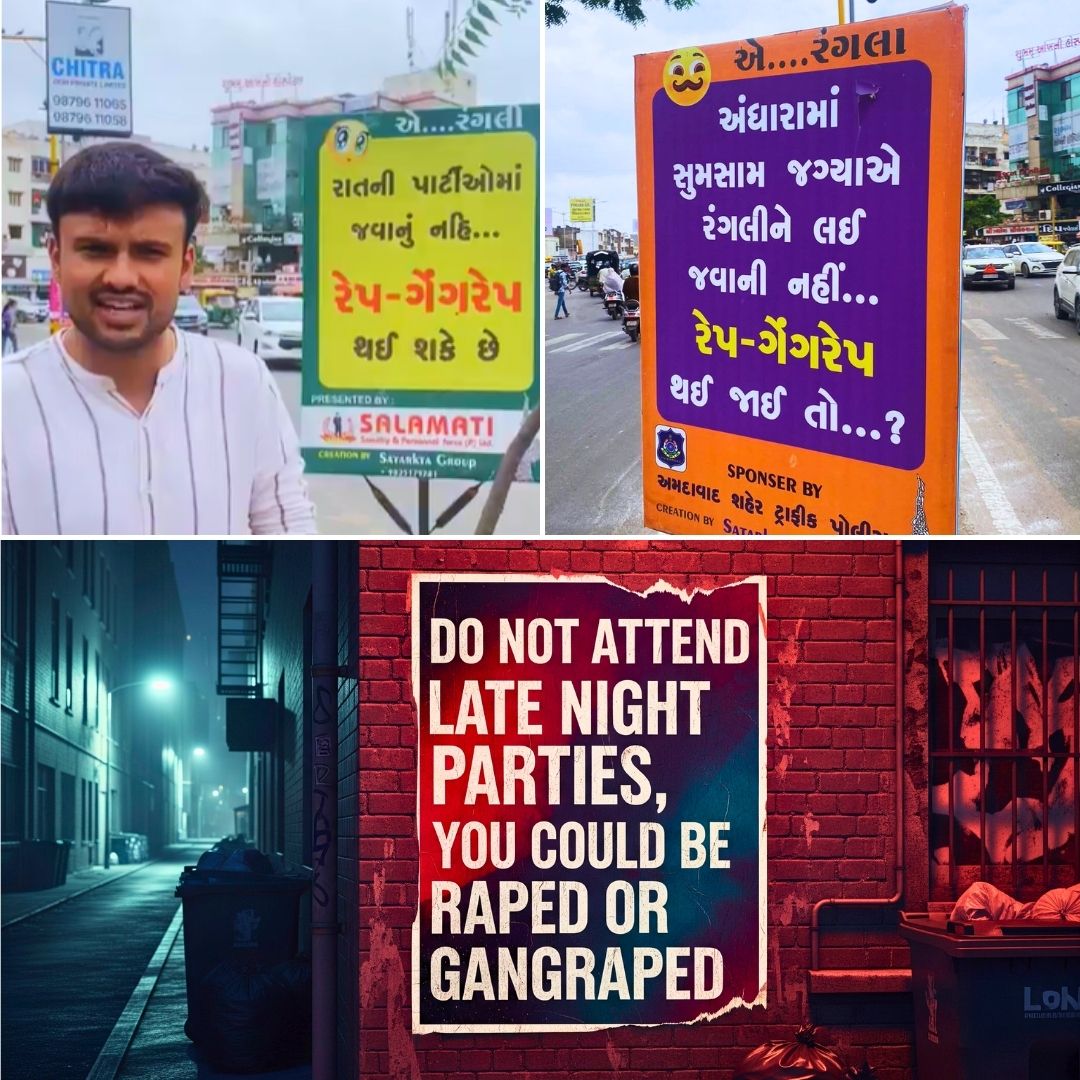Controversial posters carrying messages like “Stay home to avoid rape” and “Don’t attend late-night parties” appeared on streets in Ahmedabad, Gandhinagar, and other parts of Gujarat, prompting widespread outrage. The posters were attributed to the Satarkta Group, an NGO, but Gujarat Traffic Police clarified these were created without their consent.
Senior officials including DCP Neeta Desai and Joint CP NN Chaudhary condemned the victim-blaming and alarmist tone, immediately ordered the posters’ removal, and cautioned the NGO. Authorities reaffirmed their commitment to women’s safety by promoting responsible and empowering awareness campaigns rather than fear-inducing messages.
Public Outrage Over Sexist and Victim-Blaming Messages
The posters advised women to avoid attending parties late at night or visiting isolated locations with friends, suggesting that failure to do so could lead to rape or gang rape. Such messaging sparked strong condemnation from citizens and activists for shifting responsibility onto women rather than addressing the perpetrators or systemic societal issues.
Bhumi Patel, a concerned resident, questioned how such posters could be displayed in public spaces under the guise of official awareness drives. Fitness expert Gayatri Shah criticised the posters for reducing women’s safety to moral policing and restricting their freedom. Many vocalised the need for awareness campaigns to encourage safe environments and tougher action against offenders rather than instilling fear in women.
Official Response and Background on Satarkta Group
Satarkta Group, known for producing traffic safety awareness materials featuring the city police logo, apparently created these posters independently without police approval. Joint CP NN Chaudhary branded the content as indecent and unacceptable, emphasizing that the traffic police had no prior knowledge of the posters before their public display.
DCP Neeta Desai echoed the sentiment, stating the posters were “devoid of responsibility” and harmful. Police promptly removed the materials from public spaces upon complaints and issued a stern warning to the NGO against repeating such actions. This incident has highlighted the gaps in oversight and permissions in public messaging campaigns related to sensitive issues like women’s safety, calling for tighter controls and greater sensitivity.
The Logical Indian’s Perspective
The prevalence of fear-based and victim-blaming narratives in public safety campaigns is deeply troubling and counterproductive. Instead of empowering women, such campaigns reinforce harmful stereotypes and restrict their autonomy. The Logical Indian advocates for awareness efforts centred on accountability, community engagement, and structural reform to combat violence and improve safety.
Respect for women’s agency and dignity must be paramount, with messaging that encourages societal responsibility rather than isolating or blaming victims. As citizens and authorities, we must collaborate to foster dialogue that promotes empowerment, empathy, and equality.
આ ગુજરાત કોને બનાવ્યું?
— AAP Gujarat (@AAPGujarat) August 1, 2025
અમદાવાદમાં ગુજરાતની વાસ્તવિકતા વ્યક્ત કરતા બોર્ડ લાગ્યા અને લખવામાં આવ્યું છે કે "રાતની પાર્ટીઓમાં જવું નહીં, રેપ – ગેંગરેપ થઈ શકે છે."@khbarot pic.twitter.com/pY0eNRPdBa












